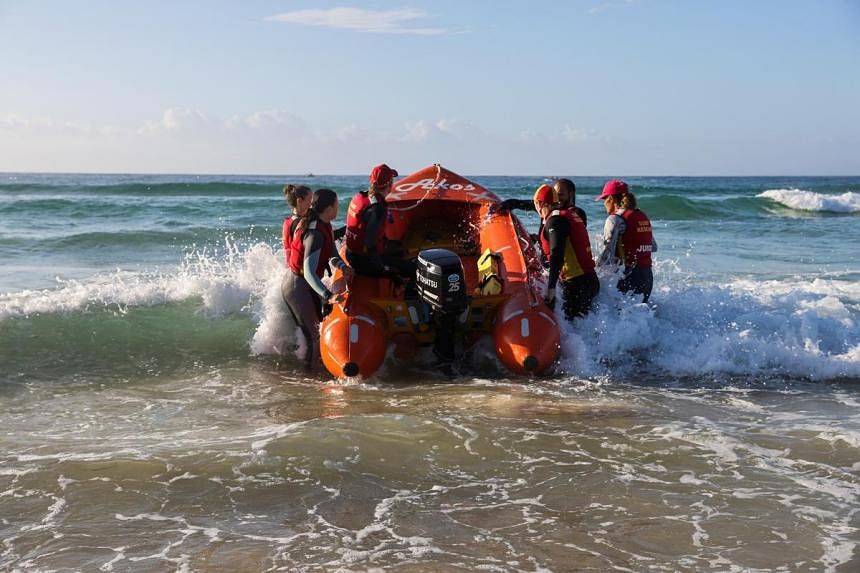SYDNEY – Sprinting through the surf, veteran lifesaver Nixy Krite and her teammates jump into an inflatable rescue boat on a sunny morning on Sydney’s iconic Bondi Beach.
Ms Krite and her team pilot the boat over the ocean before they scoop up a fellow teammate stranded at sea.
The manoeuvres are part of a training session that Ms Krite is holding for a new generation of women lifesavers, raising awareness of opportunities ahead of International Women’s Day on March 8.
Ms Krite, head of the beach’s Inflatable Rescue Boat (IRB) Racing team, has been a volunteer lifesaver for the past 12 years and devotes at least 40 hours per week to shifts during peak season.
Through training up new IRB members, she says she is helping Australia “make up for lost time”, referring to the fact that Australian women were only allowed to become lifesavers as late as 1980.
“We’re making up for those times that we just haven’t had the opportunity. So, now we’ve got equal opportunities across our organisation, it opened up doors for our women to take on those positions of leadership,” said Ms Krite, who also works as a recruitment officer for a clinical research institute.
Established in 1907, it would take another 73 years until Surf Life Saving Australia, which trains and accredits lifesavers, admitted women as fully trained members to volunteer as surf lifesavers around Australia.
Today, it is a different story. According to Surf Life Saving Australia, women make up almost 50 per cent of the 190,000 volunteer lifesavers in the 314 clubs across the country.
Among the new IRB recruits is 15-year-old Char Smith, who was inspired by her mother Kristy, a volunteer lifesaver at Bondi, to join up.
“It means everything, because it’s like I can really establish a relationship with her and I feel really close when I’m on patrol with her,” said Char.
Ms Krite said that when it comes to lifesaving, what women may lack in strength, they can make up for in technique, which makes training all the more important.
“If we are technically right, we can always get things done,” she said. REUTERS

